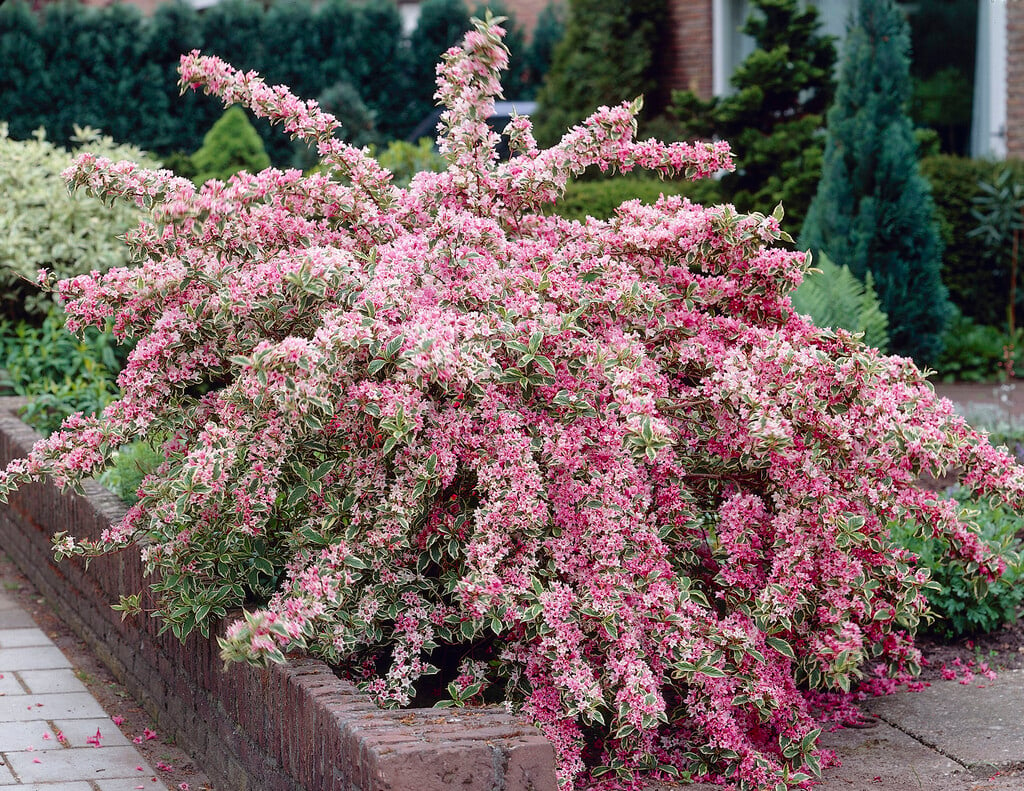Weigela 'Florida Variegata' (v)

weigela 'Florida Variegata'
A compact deciduous shrub about 1.2-1.8m tall, with narrowly oval, taper-pointed, mid to dark green leaves edged greenish-yellow aging to creamy-white, and clusters of funnel-shaped, light pink flowers to 3cm long, in early summer
Synonyms
Weigela florida 'Aureovariegata'Weigela florida 'Variegata'
see moreWeigela florida 'Variegata Aurea'
Size
Ultimate height
1.5–2.5 metresTime to ultimate height
10–20 yearsUltimate spread
1.5–2.5 metresGrowing conditions
Moisture
Moist but well–drained, Well–drainedpH
Acid, Alkaline, NeutralColour & scent
| Stem | Flower | Foliage | Fruit | |
| Spring | Pink | Green White | ||
|---|---|---|---|---|
| Summer | Pink | Green White | ||
| Autumn | Green White | |||
| Winter |
Position
- Full shade
- Full sun
- Partial shade
Aspect
North–facing or West–facing or East–facing or South–facing
Exposure
Exposed or Sheltered Hardiness
H6Botanical details
- Family
- Caprifoliaceae
- Native to GB / Ireland
- No
- Foliage
- Deciduous
- Habit
- Bushy
- Genus
Weigela are bushy deciduous shrubs with simple, ovate leaves and small clusters of funnel-shaped white, yellow, pink or red flowers on short side shoots in late spring and summer
- Name status
Accepted
How to grow
Cultivation
Easy to grow in most moist but well-drained fertile soils in sun or partial shade
Propagation
Propagate by softwood cuttings in early summer, semi-hardwood cuttings in summer or hardwood cuttings in late autumn and winter. Seed may sown in containers in a coldframe in autumn, but they are unlikely to grow true to form
Suggested planting locations and garden types
- City and courtyard gardens
- Cottage and informal garden
- Wildlife gardens
- Low Maintenance
- Flower borders and beds
Pruning
Pruning group 2. Responds well to hard renovative pruning
Pests
May be susceptible to leaf and bud eelworms, capsid bug and brown scale
Diseases
May be susceptible to honey fungus
Get involved
The RHS is the UK’s gardening charity, helping people and plants to grow - nurturing a healthier, happier world, one person and one plant at a time.
